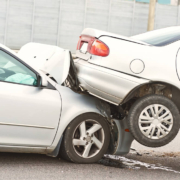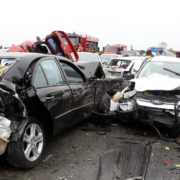What Happens if I Wait to Go to The Doctor After an Accident?
Getting immediate medical attention after an accident is essential, even if you don’t think you need a doctor. Certain injuries don’t necessarily show immediate symptoms but may require extensive medical care later. Prompt medical evaluation not only ensures early detection and treatment but also strengthens your potential personal injury claim.
Seeking medical help now can help prevent future health complications as well as establish a connection between the accident and any hidden injuries. An accomplished personal injury attorney can advise you on the necessary steps to take to ensure fair compensation.
Importance of Timely Medical Attention for Personal Injury Claims
When it comes to personal injury claims, timing matters. Seeking prompt medical attention is vital for several reasons:
- Establishing Causation: A timely medical evaluation strengthens the link between your injuries and the accident, establishing a clear cause-and-effect relationship.
- Documenting Injuries: Prompt medical records serve as tangible evidence of your injuries, bolstering your claim during negotiations or in a courtroom setting.
- Preventing Disputes: By seeking medical care promptly, you minimize the chances of opponents arguing that your injuries were either minor or unrelated to the accident.
- Mitigating Damages: Timely treatment can prevent your injuries from worsening, fostering a quicker recovery and potentially minimizing long-term medical costs.
- Complying with California Law: California law stipulates that injured parties have a legal duty to mitigate their damages, which includes seeking appropriate medical care promptly.
Impact of Delaying Immediate Medical Attention on Your Personal Injury Claim
Each year in the United States, over four million individuals experience injuries from motor vehicle accidents, encompassing anything from bruises and fractures to traumatic brain injuries and paralysis. Waiting to seek medical care can have ramifications on your personal injury claim in California:
- Diminished Credibility: The defendant, insurance company, and their attorney may challenge your claim’s legitimacy if there is a gap between the accident and your medical treatment.
- Long-Term Impact: Some injuries might not show immediate symptoms but could worsen over time. Delayed treatment could lead to long-term health complications, and insurance companies might dispute the connection between the accident and those complications.
- Gap in Medical Records: Insurance companies often review medical records to evaluate claims. A delay could create a gap in your medical history that insurers might use to question the validity of your claim.
- Establishing Causation Challenges: A delay in medical care can make it harder to demonstrate that your injuries were directly caused by the accident.
- Compensation Reduction Attempts: Insurance companies may attempt to reduce your compensation, arguing that the delay affected the extent of your injuries.
- Questions about Seriousness: Opponents may question the seriousness of your injuries, arguing that if they were severe, you would have sought immediate medical attention.
- Legal Challenges: Delaying medical attention could complicate your legal case, especially if you eventually decide to file a lawsuit. Demonstrating the link between the accident and your injuries might become more challenging.
If you have pre-existing medical conditions, delayed medical care can complicate matters. Opposing parties might assert that your injuries were pre-existing or aggravated by the delay, making it more challenging to attribute them to the accident.
Preferable Timeframe for Seeking Medical Attention After a Car Accident
In California, there is no specific statutory deadline for how long you have to visit the doctor after a car accident to file a personal injury claim. However, seeking prompt medical attention is advised. Visiting a qualified doctor within the appropriate timeframe is vital to ensure that your injuries remain eligible for insurance reimbursement.
It is best to have an initial medical visit within the first 72 hours of the personal injury for insurance considerations. Even if it is time-consuming, going for multiple doctor visits is better than risking inadequate compensation for your injuries. Nonetheless, even if you delay seeking medical care, you can still pursue compensation for your car accident injuries.
Determining what constitutes a “reasonable” timeframe for seeking medical care involves a number of factors:
- Severity of Injuries: The seriousness of your injuries can influence how quickly you should seek medical attention. Severe injuries often necessitate immediate care.
- Type of Accident: Different accidents may require different response times. For instance, a minor slip and fall may allow for a slightly longer timeframe compared to a car accident with potential internal injuries.
- Medical Recommendations: Following any medical advice or recommendations provided by professionals can guide your decision on when to seek care.
- Awareness of Injuries: Being aware of your injuries and their potential impact can help you gauge when to seek medical attention.
- Insurance Requirements: Insurance policies may have specific provisions regarding the timeframe for seeking medical care after an accident.
Recognizing Delayed Effects of a Personal Injury Accident
After a personal injury accident, not all injuries may be immediately obvious. Some injuries might manifest symptoms or complications over time, making their detection more challenging in the immediate aftermath.
- Internal Injuries: Damage to organs or tissues may not show immediate symptoms but could lead to internal bleeding or complications.
- Whiplash: Neck injuries might not cause immediate pain but lead to discomfort, stiffness, or headaches later on.
- Concussions: Head injuries could manifest as headaches, cognitive issues, or mood changes days after the accident.
- Soft Tissue Injuries: Damage to muscles or ligaments may not hurt initially but result in soreness, swelling, or restricted movement later.
- Spinal Injuries: Immediate lack of symptoms doesn’t rule out spinal cord issues, which might lead to paralysis or neurological problems.
- Fractures or Dislocations: Some fractures may not hurt at first, but pain and swelling can develop after the adrenaline subsides.
- Nerve Damage: Nerve injuries may not be evident initially but can cause numbness, tingling, or shooting pain later.
Our Attorneys Will Fight to Maximize Your Personal Injury Compensation
If you or someone you love was injured in a personal injury accident, the experienced attorneys at Garmo & Garmo, LLP can help you obtain the compensation you deserve. Our lawyers can evaluate your claim’s unique aspects, guide you on the complexities of California’s legal system, and collect strong evidence to prove the liability of the negligent parties. To set up your free consultation, call 404-720-8111 or reach us online.












